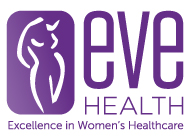This year’s theme for Birth Trauma Awareness Week (BTAW) is Postpartum Post Traumatic Stress Disorder (PTSD), which affects up to 15% of parents in the first six months post-birth.
Despite the large percentage of parents affected, postpartum PTSD remains a largely unknown and mis/underdiagnosed condition. According to the Australasian Birth Trauma Association (ABTA) it means that women, birthing people, fathers, and non-birthing parents are still falling through the gaps in healthcare and may not be receiving the best treatment for their needs.
Birth Trauma Awareness Week runs from July 16-23 in 2023 and aims to address PTSD and other birth trauma issues, support those affected, and bridge the gaps in healthcare. Let’s look at what birth trauma is and where you can get help if you have feelings of unresolved concerns or trauma regarding your birth. At Eve Health, we strongly encourage families to have a conversation with their care provider and/or our midwives so we can provide individualised care and support based on their circumstances.
What is birth trauma?
Birth trauma can be a wound, serious injury or damage. It can be physical or psychological (deeply upsetting and distressing) or a combination. Anyone associated with the birth can be affected by a traumatic birth event.
Psychological birth trauma
Some people feel a degree of shock with the birth process, this can bring on mental health issues including anxiety, depression, and other disorders such as PTSD. There does not need to be physical trauma to experience severe emotional distress. Psychological birth trauma can come about because of unmet expectations of a birth plan – if there were unplanned interventions, for example, or a feeling of not being in control or respected in your choices. It might affect a partner too, with an example being that they were traumatised by the fear of your or the baby’s survival. The list of trauma examples is long, but it’s important to know that what is traumatic for one person may not be for another. Your own personal experience is valid, and unique to you and therefore know that it is worthy of acknowledgement and recovery.
- Here is a helpful guide about the psychological symptoms of birth trauma: https://birthtrauma.org.au/psychological-birth-trauma/
Trauma does not have to occur immediately after the birth. It can occur later, particularly when combined with sleep deprivation that comes from having a baby. It might mean having obsessive thoughts that interfere with your everyday life, such as checking on your baby constantly or having fears about leaving the house.
Physical birth trauma
Physical trauma covers birth injuries and is a direct result of the birthing process. It may or may not be recognised straight away. If you notice something is not right, there is help available.
Some examples of physical birth trauma might include, but are not limited to:
Pelvic floor muscle injury: Sometimes the muscles, connective tissues and nerves can be damaged in the process of the baby moving through the area known as the pelvic floor.
Pelvic organ prolapse (POP): When organs lose some support and move downward.
Pelvic fractures: These affect the pubic bone, coccyx, and sacrum.
Perineal tears: Tears in the skin, muscles, or other soft tissues between the vaginal and anus often described in “degrees”, such as first, second-, third-, or fourth-degree tears. Third- and fourth-degree tears have more long-term concerns for the mother.
Caesarean section: Following abdominal surgery to deliver the baby, pain is common in the early months. Pain and recovery needs to be carefully managed and monitored.
Labial tears: Tear to soft skin tissues around the vulva. Also referred to as “grazing”.
Fistula: When a passage forms between two parts of the body not normally connected.
- Here is a helpful guide about the physical symptoms of birth trauma: https://birthtrauma.org.au/physical-birth-trauma/
Mental preparedness before birth
There is no right or wrong way to prepare for having a baby or the birth process, but having an awareness of different birth pathways or processes can help in terms of mental preparedness. This might include having flexible birth plans and knowing that sometimes emergency intervention is needed if there is risk to yours or baby’s safety.
There are many organisations committed to raising more awareness about the different scenarios of the birthing process.
Sources and some helpful resources, with great tips on preparing for birth are:
We can help
Eve Health is a complete women’s health clinic in Brisbane and has proudly provided excellence in women’s healthcare since 2007. We offer Childbirth Education, Birth Mapping appointments and debriefs with our midwives. For more information about Eve Health, visit us at www.evehealth.com.au or phone 07 3332 1999.
For more information about Birth Trauma Awareness Week 2023, visit: https://birthtrauma.org.au/birth-trauma-awareness-week-2023/
Comments are closed.
